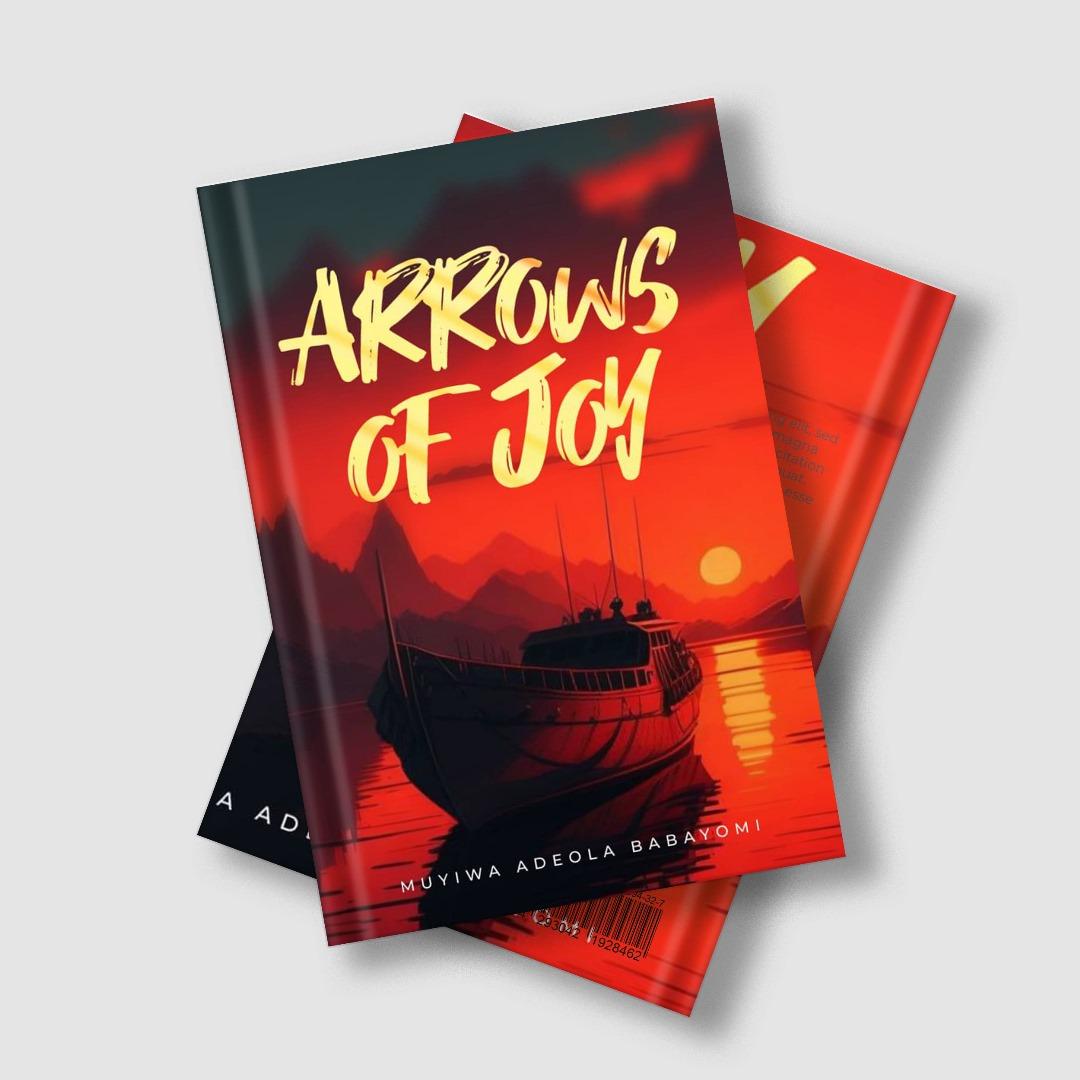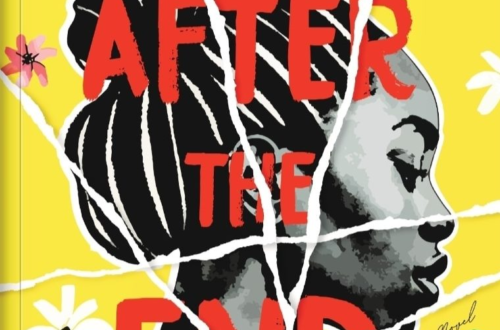In this expository interview, I had the pleasure of speaking with Muyiwa Adeola Babayomi, the gifted poet behind the collection of poems, “Arrows of Joy”. With each poem, Babayomi poetically narrates the cultural reality of life in Africa with the recurrent universal themes of love, perseverance, and the spiritual journey. We talked about the origins of Arrows of Joy, discussing how he draws from mythology to convey timeless lessons and crafts vibrant imageries to shed light on the challenges and triumphs of the African society. He spoke candidly about his creative process, sharing insights into the inspirations that shape his work and his desire to reflect the multilayer of the human experience through poetry. With a distinct emphasis on storytelling rooted in culture, while exploring contemporary themes, Babayomi’s words offer a glimpse into his artistic vision, as he invites readers to journey through the layers of emotion, memory, and hope that define Arrows of Joy.
——————————-
SKR: Uh, alright, so, Muyiwa, your collection of poems, “Arrows of Joy” is both evocative and deeply rooted in African culture. Let’s start with the big picture: What first drew you to poetry, and how did you develop Arrows of Joy?
Muyiwa Adeola Babayomi: Hmm, that’s an interesting one. I’ve always been fascinated by words, you know? Poetry, especially, has this way of capturing emotions and cultural nuances in just a few lines. Arrows of Joy was born out of my love for storytelling and a desire to show off our vibrant African heritage. I wanted to – uhm – create a collection that explores the journey of our African heritage, the essence of our land, the vast wildlife and the enduring spirit of our people. The process involved diving deep into memories, folklore, and personal experiences to paint a picture that resonates across time and space.
SKR: Yeah, I get that. Speaking of heritage and spirit, poems like Home of the Rising Sun and Museum of Hope beautifully portray a sense of cultural pride and preservation. What inspired these particular pieces?
Muyiwa Adeola Babayomi: Basically, Home of the Rising Sun reflects the rich history of Africa, where we celebrate the strength of our people despite the trials and tribulations faced over time. It’s my tribute to the unwavering spirit that’s rooted in our culture, you know? And Museum of Hope was written at the worst possible time of my life. Poetry was the only outlet I had to just let things off. So that one is pretty personal but edited slightly for publication, for the purposes of making it more relatable to the readers. It needed to feature themes that are universal yet unique to the African experience, especially as it concerns our unique grasp of hope as a cultural doctrine. Even when shadows creep in, there’s this seed of optimism that refuses to be buried. The idea was to capture how hope is woven into our daily lives, our songs, and our storytelling.
SKR: Beautiful. And Muyiwa, when it comes to capturing that kind of cultural preservation and identity, your use of imagery is very striking. What role does the natural world play in your poetry, particularly in pieces like Thunderclouds and Morning Grass?
Muyiwa Adeola Babayomi: Nature, it’s such a profound source of inspiration. In Thunderclouds, I wanted to explore the emotional storms we face in life. It’s like, uh, using the elements to bring out the struggle and the beauty in our existence. And Morning Grass, well, that was about the gentle and nurturing aspects of nature. Dew on grass, sunlight filtering through—these simple pleasures, you know, haha, they remind us of the fragility and joy in every moment.
SKR: Yeah, and that balance between fragility and strength really shines through in your work. So, let’s talk about your creative process. When writing Arrows of Joy, how did you select the themes, and what did your writing journey look like?
Muyiwa Adeola Babayomi: The process was pretty organic. So here is the truth, none of this was planned. I write poems and just show my friends. I write poems for grieving friends and struggling families. But then, the feedback is quite encouraging and the effects my writing has on people I share with, is quite positively overwhelming. So yeah, I didn’t set out to write to specific themes initially; they kind of unfolded naturally as I reflected on my own experiences and the stories that needed to be told. I gathered notes, fragments, and ideas over time, letting them simmer. Then I’d sit down and write. Some days, words flowed like a river; other days, it was more like searching for a hidden spring in the desert and that was especially when I decided to turn my archive into a project. Hahaha! But over time, the collection started to take shape, and the rest came together almost like, uh, arrows finding their targets.
SKR: Fascinating. Your journey as an author is quite relatable. I am glad you were able to come out with an amazing body of work, Muyiwa. What do you hope readers will take away from this collection?
Muyiwa Adeola Babayomi: Ultimately, I hope readers find a piece of themselves in these poems. Whether it’s love, perseverance, heritage, or hope, I want each poem to resonate in a way that helps people reflect on their own journeys and their place in the world. If my words can inspire someone to feel seen, understood, or uplifted, well, that would be the greatest joy. Like my friend the psalmist will say, I think too, if you tell stories bigger than you, the world will expand to contain your voice.
SKR: Great to hear that. Amazing. So, let’s dive deeper into my other questions. I have a list of questions here that I would like to run through. Now, your creative inspirations. Your poems often feature the very popular mythical stories, like in Wise Old Tortoise. How does mythology shape your storytelling?
Muyiwa Adeola Babayomi: Mythology is central to my writing. I grew up hearing several mythical cultural stories from my father, who grew up in the village until his early 30s. He doles them out effortlessly, like a second nature. You know, our (African) myths are so rich with wisdom—they carry our values and cultures across generations. With Wise Old Tortoise, I sort of drew from those old tales about tortoise that taught us patience and cleverness. It’s fascinating how these characters can convey timeless lessons. My main aim was basically retelling the story on the tip of my own poetic pen. So basically, I have heard it retold a million times in different ways… but this version of narration is mine. And I hope it sticks with the reader.
SKR: Interesting. So, let’s speak more on that… regarding contemporary issues, how do you see your poetry addressing the challenges faced by modern African societies?
Muyiwa Adeola Babayomi: Hmm, that’s thoughtful. I kind of believe poetry should hold up a mirror to society. And that was what I achieved, or at least tried to achieve through Arrows of Joy, I wanted to explore the layers of our struggle and the resilience present in our communities. Poems like Cane Town Crier shed light on the voices of those who are marginalized or overlooked, while others like, uhm , like Miracles, offer hope and renewal. I think it’s about acknowledging our challenges while also celebrating the strength and creativity that thrives within our cultures.
SKR: Now, let’s talk about love. Poems like Morning Grass convey different shades of love and longing. How do you approach writing about love in your poetry?
Muyiwa Adeola Babayomi: Love—it’s such a universal theme, isn’t it? I am a bit of a romantic myself (laughs). One way to know is, I married my high school sweetheart. My only understanding of romantic love has been through my impassioned feelings towards her. When writing about love, I try to capture its many facets: passion, tenderness, and even the bittersweet moments. With Morning Grass, the focus is on the intimate joy that’s shared in simple moments of deeply loving someone other than yourself.
SKR: Thanks for doing this with me, really. I might not be able to run through all the questions I have, but could you tell our readers what your future aspirations in poetry are? Are there any themes or stories you’re eager to explore next?
Muyiwa Adeola Babayomi: I’d say I’m always looking to explore our collective histories and stories with strong cultural themes. I am currently exploring migrant experiences, as I am currently one myself in the UK. Unearth and poetically explore those conflicted identity issues when you migrate to another country. And yeah, I am looking to work on issues around cultural assimilation sometime in the future. Poetry is a journey, and I hope to continue offering readers something that connects them with their roots while also inspiring them to look forward with hope.
SKR: I would have asked about your pet peeve and poetry book of all time, but, I will save it for another day. See you next time. Thank you.





